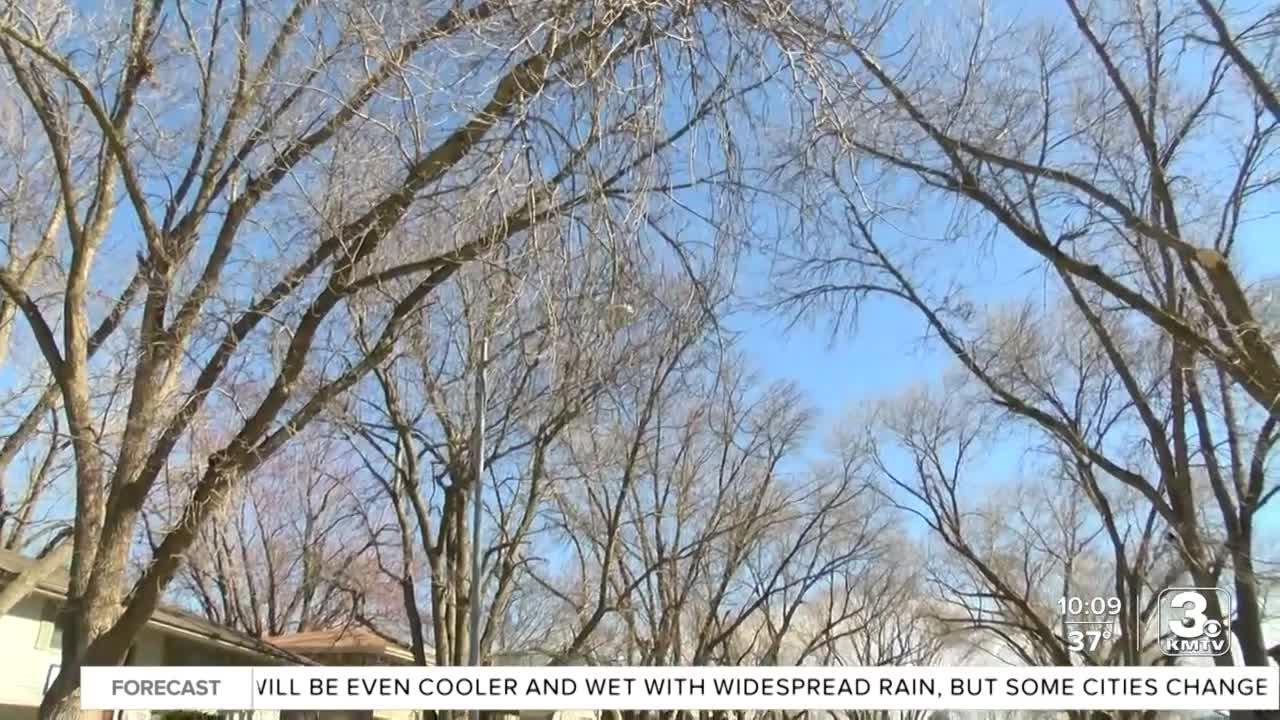OMAHA, Neb. (KMTV) — The Emerald Ash Borer (EAB) is a beetle that lives off of ash species. It has killed thousands of ash trees in Omaha so far.
"We want to make sure that we get something down, so that the whole neighborhood is not tree barren," said Diana Failla the Executive Director of the Urban Bird and Nature Alliance.
The Trendwood neighborhood in Omaha has about 600 ash trees, and on Pine Street in particular. A resident told 3 News Now that the trees had been planted in the 60's to help sell the homes, and make the neighborhood more inviting. Unfortunately due to a beetle that is killing ash trees, soon all of them will need to be removed.
Unhealthy trees can become a hazard. Branches fall off, or the tree themselves can fall and do a lot of damage with how massive most of them are. The city has already began removing ash trees that are infected.
"Just the trees that we manage ourselves through the Parks and Rec department, upwards of 15,000 across the city. That isn't counting private trees, and so we are at the point now of approaching about half of those being removed and addressed," said Matt Kalcevich, Director of Parks and Recreation and Public Property.
With help from the Target Corporation, through the Arbor Day Foundation, about 120 trees will be donated and planted in the Trendwood neighborhood. Residents were able to help select the kind of trees that will be planted on May 8th.
"It raises pride of [the] place," said Failla. "So we show them what the red oaks look like in the fall, we show them the catalpas in the spring and the flowers that bloom from them. Then we plant burr oaks, and swamp white oaks, and royal raindrop crabs, the red sunset maples. It's a great diversity of trees that are still tall shade trees so that boulevard look by the time they grow."
The city has also chosen to plant a variety of trees across the city.
"In case there is ever an issue like this again, that attacks one species of tree, it isn't the dominant or predominant species that is in our community where we have this sort of same outcome and we see a number in the thousands having to be removed at one time," said Kalcevich.


